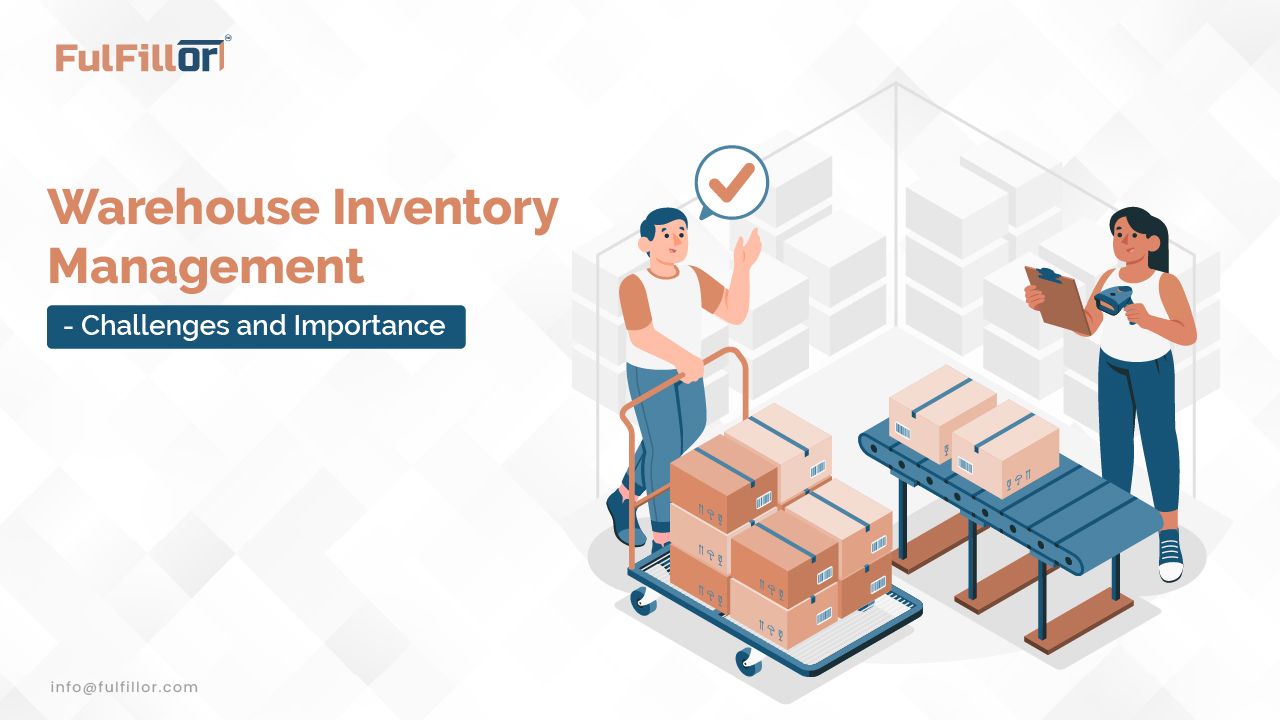Warehouse Inventory Management: Key Challenges and How a 3PL WMS Helps Overcome Them
In the US, warehouses and 3PL providers are under increasing pressure to manage fluctuating inventory demands. A modern 3PL WMS can help streamline operations and reduce costs. Not only does it help store the items but it also helps provide enhanced customer satisfaction. However, with the rapidly changing trends and demands it is important to let technology take the front seat and do the driving, thus leading to an effective warehouse inventory management.
It helps businesses maintain operational efficiency and meet customer demands while minimizing costs, thus transforming your warehouse into a well-oiled machine.
In this guide, we will delve into the importance of effective warehouse inventory management, along with the challenges and solutions that will help you optimize your warehouse operations with ease.
So, without any delay, let's start with the basics!
What Is Warehouse Inventory Management? (A Complete Guide for US Warehouses & 3PLs)
Warehouse inventory management refers to a series of processes that help track and control the stocks of goods in a warehouse. It also helps ensure optimized inventory levels alongside efficient use of resources which helps in seamless order fulfillment.
The key functions of warehouse inventory management include receiving and put-away, storage, and organization, order picking and packing, inventory control, order management, stock replenishment, etc.
Top Challenges in Warehouse Inventory Management (and How a 3PL WMS Solves Them)
Warehouse inventory management is paramount which helps ensure seamless operations alongside quicker order fulfillment process. However, it comes with a set of challenges that can highly affect the profitability of a business. Some of the common challenges are as follows -

- Fluctuating Demands
- Inaccurate Inventory Tracking
- Obsolete & Excess Inventory Management Challenges
- Poor Space Utilization in Warehouses
- Technology Adoption Challenges for 3PL Providers
Fluctuating Demands
Sometimes it gets challenging to maintain optimal inventory levels due to the variable demands. It mainly happens because of sudden spikes in the demand for a certain product, or seasonal trends which further leads to loss and unsatisfied customers.
Inaccurate Inventory Tracking
It is one of the most common challenges of warehouse inventory management that can lead to stockouts or overstocking. It happens because of the lack of inventory audits or manual data entry errors which further causes discrepancies between the recorded data and the available stock levels, thus causing inaccuracies.
Obsolete & Excess Inventory Management Challenges
Another common challenge to consider is holding onto outdated or excess inventory which highly affects the capital and takes up a lot of the storage space. Furthermore, it also leads to spoilage, thus causing losses and decreased profitability, especially for perishable goods.
Poor Space Utilization in Warehouses
Inefficient use of warehouse space, storage methods, and improper layout is another issue to take care of, as it can lead to congestion and difficulty in locating items. It also makes the order fulfillment process time-consuming.
Technology Adoption Challenges for 3PL Providers
With technology taking the front seat and driving business growth it is important to adopt new tools and technologies. It helps automate the manual processes alongside making the warehouse operations efficient.
Why Effective Inventory Management Matters for US Warehouses and 3PL Providers
Moving ahead, effective warehouse inventory management is important for a successful business and helps oversee, control, and organize inventory with ease. Some of the reasons are as follows -
-
The primary benefit of having effective warehouse inventory management is that it helps meet customer demands and provide enhanced customer satisfaction with real-time stock visibility. Thus leading to a quicker order fulfillment process and minimizing the risk of stockouts.
-
It helps optimize the inventory levels which helps reduce the associated costs like storage, labor, obsolescence, and more, thus minimizing the losses.
-
Effective inventory management also helps provide accurate data which helps in making improved business decisions.
-
It also helps identify the latest market trends and demands thus ensuring availability of stock as per the requirements.
-
It also helps mitigate the risks caused due to overstocking or understocking, which might lead to a damaged business reputation. In addition, it also leads to improved cash flow, so that the capital is not unnecessarily tied up in excess inventory.
-
Another benefit is that it helps in making the best use of available warehouse space, reducing the need for additional storage facilities and associated costs.
How FulFillor 3PL WMS Enhances Warehouse Inventory Management
Now that you know about the challenges and importance of effective warehouse management, it is also important to find a solution that meets your unique business needs in a hassle-free environment.
FulFillor’s 3PL WMS is designed for US warehouses, retailers, and logistics providers — helping them optimize inventory, reduce costs, and deliver faster, more accurate fulfillment.
It has countless features and integrations that help ease the workflows, tailored for businesses of every scale and size while ensuring increased profitability and business growth.
Schedule a call with our 3PL WMS experts to know how FulFillor can help your business.


